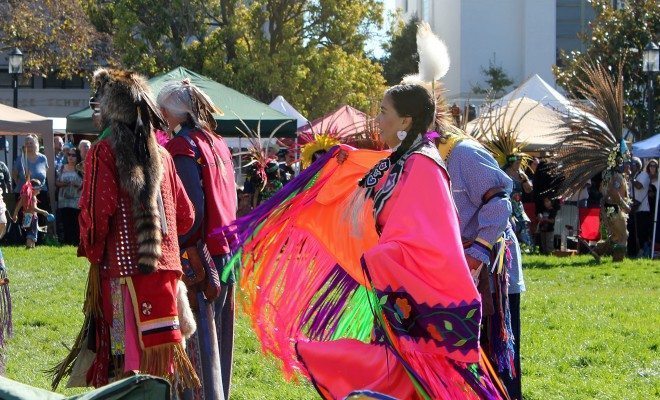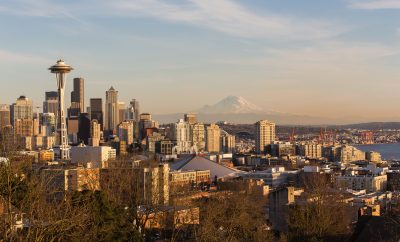 Image courtesy of [Quinn Dombrowski via Flickr]
Image courtesy of [Quinn Dombrowski via Flickr]
News
Columbus Day vs. Indigenous Peoples Day: A Campaign for Change
Tomorrow is, technically speaking, Columbus Day. But that’s not what it’s called everywhere, as cities across the United States are moving toward calling the day Indigenous Peoples Day.
The first city to abolish the name “Columbus Day” was Berkeley, California in 1992. Since then, there’s been a slow trickle of additional towns and counties changing the name. Other places that have renamed the holiday since Berkeley’s landmark decision include Seattle, Minneapolis, and South Dakota. This year, eight major cities and counties–Albuquerque, New Mexico; Lawrence, Kansas; Portland, Oregon; St. Paul, Minnesota; Bexar County, Texas; Anadarko, Oklahoma; Olympia, Washington; and Alpena, Michigan–all began celebrating Indigenous Peoples day.
Indigenous Peoples Day aims to recognize the fact that the indigenous people that Columbus encountered were often subject to horrible treatment, abuse, and disease. Estimates put the percent of the native population killed upon European arrival in the Americas at 90 percent. Those who argue for Indigenous Peoples Day also do so in recognition of the fact that discrimination has continued against indigenous people even in recent years. The native population in the United States still has to contend with poverty, health issues, income inequality, and racism. As Melanie Yazzie, co-founder of a group called Red Nation, one of the organizations pushing to name the holiday Indigenous Peoples Day, explained:
It is important because the second Monday in October is officially recognized nationally and even internationally as Columbus Day. As countless people have pointed out over the past decades of trying to abolish Columbus Day, it is a holiday created to celebrate the genocide of Native people. This is experienced by Native people as a violent event that has not ended. We still live under a sort of colonialism here, at least in the United States
Change Columbus Day to #IndigenousPeoplesDay #BoycottColumbusDay pic.twitter.com/yu5MyPbN1u
— #IndigenousPeopleDay (@marthauprise) October 3, 2015
No, we should not celebrate #ColumbusDay! – #AntiColumbus #IndigenousPeoplesDay #AntiColumbusDay pic.twitter.com/71oZqQW1Xn — Kathrin Sapiha (@KathrinSapiha) October 11, 2015
However, the quest to rename Columbus Day as Indigenous Peoples Day has been a struggle, largely promoted through lobbying at the local level. It stands contrary to the view of history that many Americans have, in which Columbus’s arrival in the New World is celebrated. Moreover, it is just a symbolic movement–there’s still a lot of work that needs to be done to improve the lives of native people. However, it’s certainly a step in the right direction–Columbus Day may become a relic of the past very soon, and for good reason.








Comments